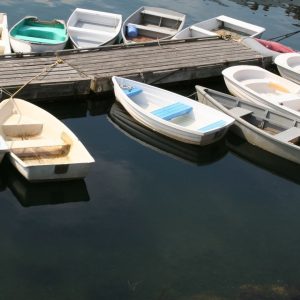The Florida Keys, with their turquoise waters, vibrant marine life, and stunning coral reefs, have long been a haven for boaters and sailors. This unique and fragile ecosystem holds a treasure trove of natural beauty and wonders. However, the growing popularity of this island chain has led to an increased demand for boat access and facilities. As boats of all sizes and types navigate these waters, it becomes increasingly clear that we need solutions for preserving the delicate marine environment while accommodating the needs of boaters, and mooring fields may play a vital role.
The Florida Keys are a tourist destination and, as such, a living laboratory for oceanographers, marine biologists, and ecologists. The coral reefs and seagrass beds in the Keys play a crucial role in the broader marine ecosystem. However, anchoring boats in these areas poses a severe risk to the ecosystem.
The tourism and fishing industries in the Keys are significant contributors to the local economy. Protecting the marine environment and its biodiversity is not only ethically responsible but also a smart business move. To strike a balance between preserving the environment and meeting the growing needs of boaters, mooring fields offer an attractive solution. Mooring fields are designated areas where boats can safely tie up to buoys rather than dropping anchor. By establishing and expanding these fields, we can significantly reduce the impact on coral and seagrass while accommodating boaters.

Mooring fields offer several significant advantages:
1. Environmental Protection: Mooring fields help protect sensitive marine ecosystems. By eliminating the need for anchors, they prevent damage to coral and seagrass, reducing the negative environmental impacts.
2. Safety and Accessibility: These fields provide safe and secure places for boaters to moor their vessels. Well-maintained buoys ensure that boats can be secured, which can be especially important during stormy weather.
3. Organization and Management: Mooring fields are not just a collection of buoys but managed spaces. Authorities can oversee usage, collect fees, ensure that boats follow responsible practices, and pump out services to help ensure water quality. This regulation helps prevent overcrowding and enforce sustainability measures.
4. Revenue Generation: Establishing mooring fields provides a potential revenue stream for local governments or organizations responsible for managing these areas. The funds can be reinvested in marine conservation and safety initiatives.
5. Boater Convenience: Boaters benefit from mooring fields as well. They offer a convenient and secure way to moor their boats while enjoying the beautiful surroundings of the Florida Keys. Most mooring fields have land-based facilities where boaters can do their laundry, park a bike or scooter, and, most importantly, dispose of household garbage and recyclables.
The Monroe County Commission has moved forward on plans to expand the City of Key West mooring field and develop another one in Boca Chica Basin near Stock Island. At its meeting in June, the commission approved a contract to perform mooring field design and permitting services for these two new mooring fields. It will be funded entirely by the state or Monroe County boating improvement funds. Boating improvement funds come from the registration fees paid by local boat owners when they register their boats each year. Monroe County Marine Resources manages this project.
Mooring fields present us with a proactive and practical solution to this challenge. They can help us protect the unique marine environment that makes the Keys a world-renowned destination and provide the infrastructure needed to ensure that the Keys remain accessible to boaters, sailors, and adventurers.
 2
2
